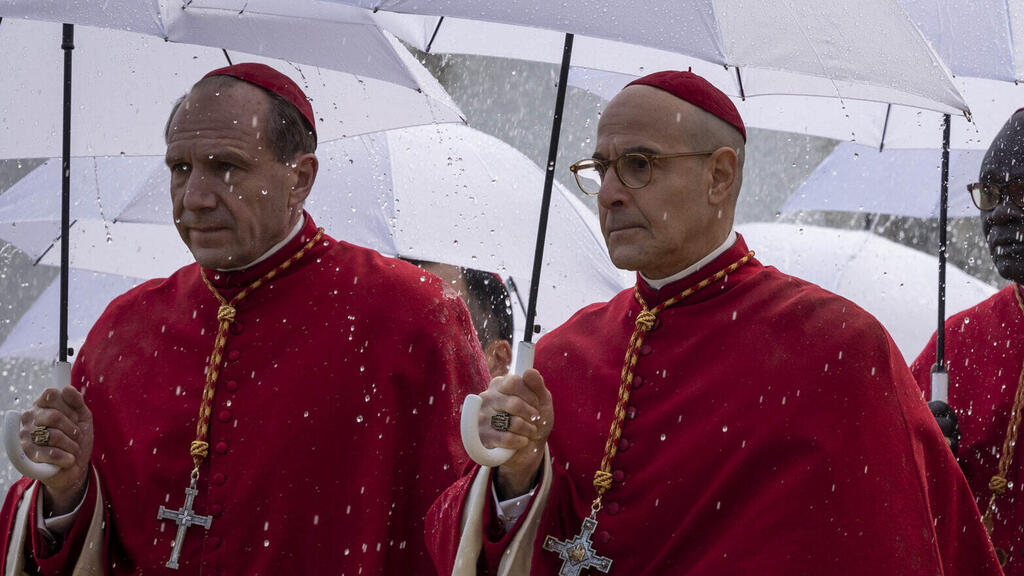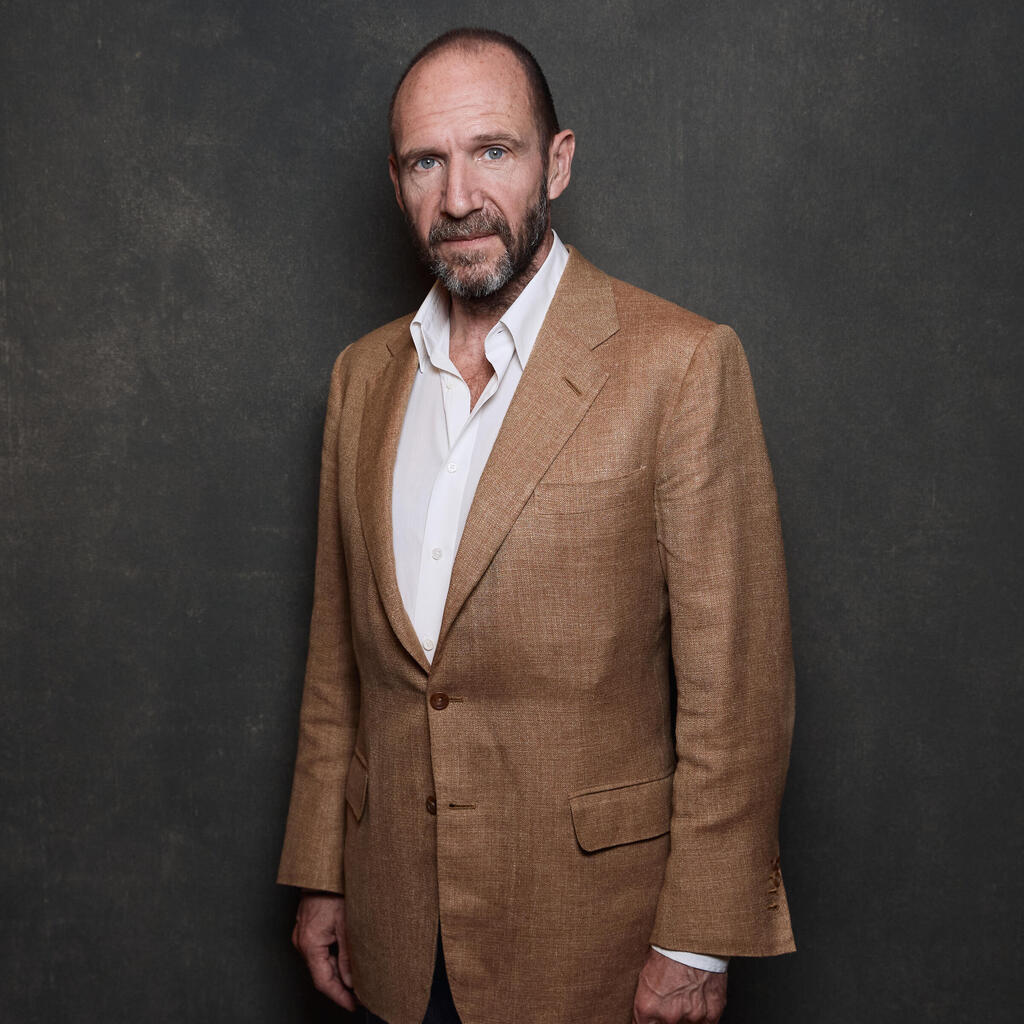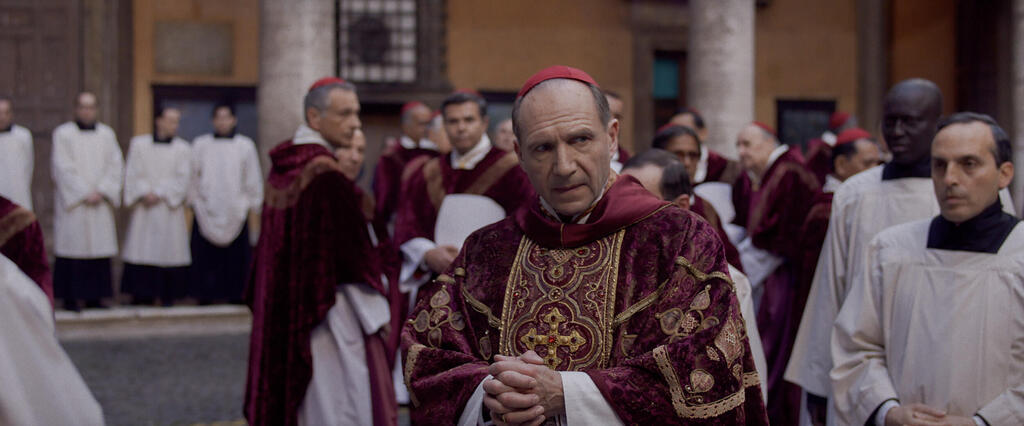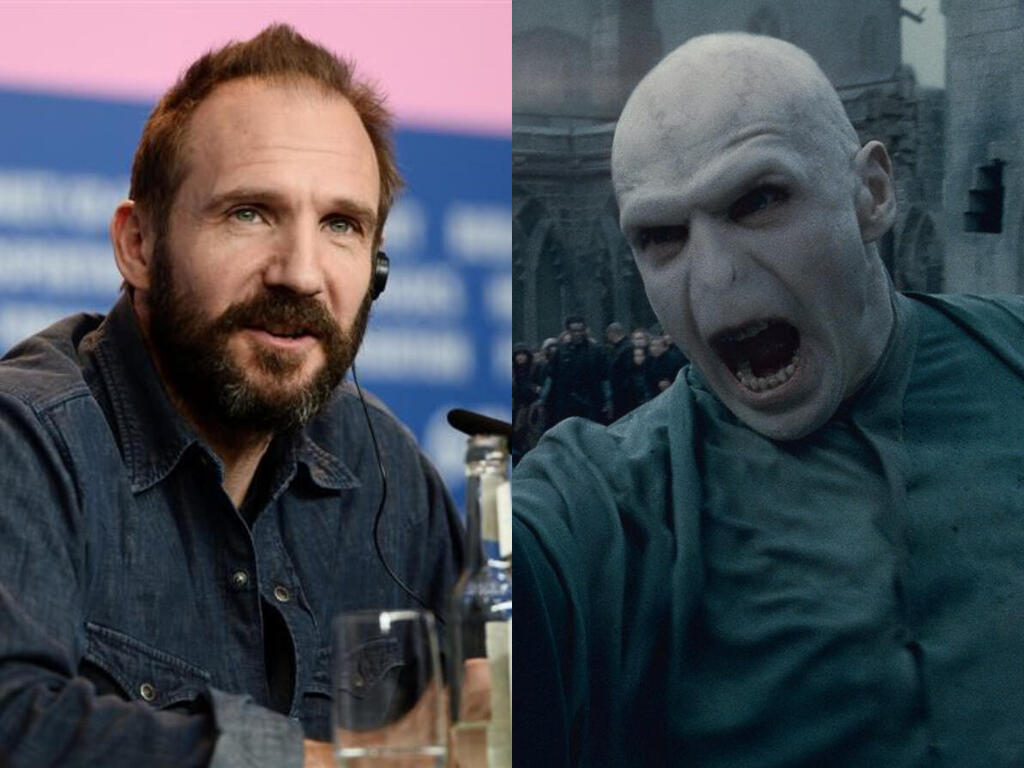Betrayal, manipulation, revenge, suspense and unexpected twists—set against the dramatic backdrop of the Vatican, the Sistine Chapel and a sea of red robes—are exactly what Conclave promises its audience, and it delivers in full.
The film is a cinematic adaptation of Robert Harris' bestselling novel, directed as a political thriller by Oscar-winner Edward Berger, acclaimed for All Quiet on the Western Front.
Conclave trailer
(Video: Courtesy of Lev Cinema)
Ralph Fiennes stars as Cardinal Lawrence, who, following the sudden death of the reigning pope, must set aside his personal doubts about faith and the Church to oversee 113 cardinals gathering in the Vatican at this pivotal moment. These cardinals will remain isolated until they elect one of their own as the new pope until white smoke rises.
Among them is Bellini, the gentle and progressive cardinal played by Stanley Tucci, and Tremblay, the slick and conservative counterpart portrayed by John Lithgow. Both carry scandalous secrets, yet they are far from the only ones with skeletons in their closets.
"Robert Harris writes what my father calls a ‘gripping story’—one you can’t put down, one where you just have to know what happens next," Fiennes says in an interview with Ynet. "He creates incredible narratives based on extensive research. Even if you don’t know exactly what happens inside the room where the papal election takes place, you understand the selection process. You know what kind of music they can play during those meetings. It was important to me that we capture the rituals and physical details with accuracy."
The film, a standout in this year’s awards season, received eight Academy Award nominations, including Best Actor for Fiennes—his third nomination. It ultimately won Best Adapted Screenplay. When asked what drew him most to the role, Fiennes responds:
5 View gallery


Ralph Fiennes as Cardinal Thomas Lawrence in Conclave
(Photo: Courtesy of Lev Cinema)
“The character is very complex, and grief is a huge part of it. We meet him when he’s lost his holy father, the Pope, whom he was close to. On top of that, he encounters moral and ethical questions about the conduct of his colleagues, and, of course, he encounters his own inner ambition, which emerges at a certain moment. These are all wonderful areas of tension to play, and those things appeal to me.”
"I think I understood Lawrence’s DNA quite quickly," he elaborates. "The anxiety, doubt and uncertainty. He asks delicate questions, listens to the answers and is constantly observing. As an actor, you can live an entire inner life, and you hope it can be read on your face. While you listen and react, you build a sense of yourself as the character—what you feel and what’s going through your mind."
One of the film’s most powerful dialogues takes place between Lawrence (Fiennes) and the progressive Bellini (Tucci), offering a fascinating analysis of the Catholic Church—touching on themes of responsibility, ambition, liberalism and conservatism. Does Fiennes believe liberals have a duty to lead the world forward while conservatives are simply stuck in the past? In his view, the issue is far more complex.
"The liberal movement, if you call it that—it's a label," the actor says. "Let's face it, it has to do with people in their lives. Ordinary people are confronting issues of family, birth, sexuality, and poverty every day—these are very real, flesh-and-blood questions. I think people would argue convincingly that the rules of the Catholic Church are not helpful and are very strict. The anti-contraception argument is a hard one. And, of course, the pro-choice question is very real, and the Catholic Church’s completely anti-abortion stance cuts right against the very real choices many women face.
“To call it liberalism is oversimplifying. These are women, families and children. So how does the Church properly help those people confront these real problems? That is a very valid question. Some people, of course, resist the Church’s hardline stance on some of these questions because it doesn’t help people, and there are better answers than these hard rules. But then there are other people who want the order that conservative values give. They want that discipline, and they cling to it. And that is the certainty that I think Lawrence is worried about.”
Fiennes pauses for a moment, thinks and continues: "Doubt dominates the film, life and the Catholic Church too. One of my best friends is gay, has been married to his husband for 40 years, and goes to church every day. He’s kind of a saintly man who’s a doctor for infectious diseases—and he goes to church every day, and he’s married to a man. When I asked him how he reconciles it, he said, ‘One thing is God, one thing is the Church.’ He believes in God, he’s religious and he thinks the dogma—maybe one day it would move on. He lives with a contradiction. So, it’s possible."
Get the Ynetnews app on your smartphone: Google Play: https://bit.ly/4eJ37pE | Apple App Store: https://bit.ly/3ZL7iNv
Fiennes shares that he grew up in a Catholic household with a mother deeply devoted to her faith and received a Catholic education. However, at 13, he rebelled against the Church and has since described himself as someone without a specific religion or faith.
“My mother was a very committed Catholic—I would consider her an enlightened Catholic,” he smiles. “She stepped back from the Catholic Church to a large extent in her adult life. She encountered some disappointments with certain individuals in the Church, but she never lost her connection to it.
“When she was diagnosed with cancer in her early 50s, she went into remission and undertook a pilgrimage, visiting ancient medieval sites in France, eventually making her way to Santiago de Compostela. She later wrote a wonderful book about it, On Pilgrimage, which is really a continuation of her search for spiritual meaning. She doesn’t disparage the Catholic Church. She recognizes the extraordinary people of great spiritual depth within it—and in other religions too. That book is obviously my mother’s book, but I still take a lot of inspiration from it.
“I stepped back from the Catholic faith when I was a teenager, but that hasn’t stopped me from appreciating great paintings, going into churches, and wanting to be open to the spirit—the same spirit taught by the Buddha and other great philosophical and religious teachers.”
Fiennes is well aware that the film—while centered on political intrigue within the Church—explores themes that resonate deeply with the political world beyond its walls, especially as it arrives at the height of a global election year. He is also mindful of the volatile state of the world. Though he struggles to articulate the global chaos, he makes an effort to convey a unifying, collective message.
“I think the spirit is there; it can be inside you. But, of course, our human messiness—our egos, ambitions, our vanities—constantly trip us up and ambush us. If we can try to find some common love—between ourselves, our children, the sun, nature—I know it’s hard. But in the end, the love of Jesus is His love. It’s a simple and devastatingly simple proposal. It’s very hard, but I think we should try to be open to it.”
'The only real hope is that you don’t bore the audience'
At 62, Fiennes is widely regarded as one of the greatest actors of his generation. He first gained international recognition 30 years ago with his chilling portrayal of Nazi officer Amon Göth in Steven Spielberg’s Schindler’s List—a role that earned him his first Academy Award nomination. Three years later, he received his second Oscar nomination for the romantic adventure drama The English Patient.
Fiennes played M in three James Bond films and portrayed the Dark Lord Voldemort in four Harry Potter movies. His diverse filmography includes acclaimed performances in Spider, The End of the Affair, The Constant Gardener and The Grand Budapest Hotel.
Beyond film, Fiennes is a regular presence on London’s prestigious West End stages, often taking on dark, complex Shakespearean roles. He has also directed three films.
Most recently, Fiennes unexpectedly went viral after a CNN New Year’s Eve interview in which the usually serious actor delivered a dramatically British reading of influencer Jules Lebron’s viral workplace etiquette monologue on how to be demure. The laughter from hosts Anderson Cooper and Andy Cohen was uncontrollable.
So, what kind of roles excite Fiennes the most? Is he drawn to serious, complex characters like Cardinal Lawrence—or does he prefer terrifying villains like Voldemort?
“Well, villains can be fun, I suppose. But as I’ve gotten older, I find myself more drawn to roles—if I’m lucky enough to have the opportunity—that aren’t just about the character but about the larger film in which they exist," he says. "Like this film—it has lots of real, wonderful questions about spirituality, power, the Church, how we trust each other. You could draw all kinds of parallels between it and the political process. It’s got some great, valid questions, many of which are distilled in the character of Lawrence, and that’s what appeals to me.
“These roles are wonderful challenges—not just to portray them, but to make them human. Lawrence isn’t just a walking essay; he’s a living, breathing human being with very real human feelings and emotions and I love what I instinctively thought this character was. I like to play contradictions, or to feel that there are inner battles and negotiations going on inside people. A villain like Voldemort, for instance—he’s sort of fun, but he’s actually quite hard because Voldemort is sort of one thing. He doesn’t have doubt, he doesn’t have questions—just one, rather nasty fascist imperative.”
Lawrence, as you said, is not an easy character—he's also a Catholic figure representing the Church. How do you make such a character relatable to the audience?
"You aspire to create a role with enough realism and interior life that at least the audience will lean in. Whether they empathize is up to the individual. You hope there’s a connection, that at the very least, the audience is curious. The only real hope is that you don’t bore them. But whether they empathize or sympathize is really up to them—you just hope that at least they’ll sit through the film.”







